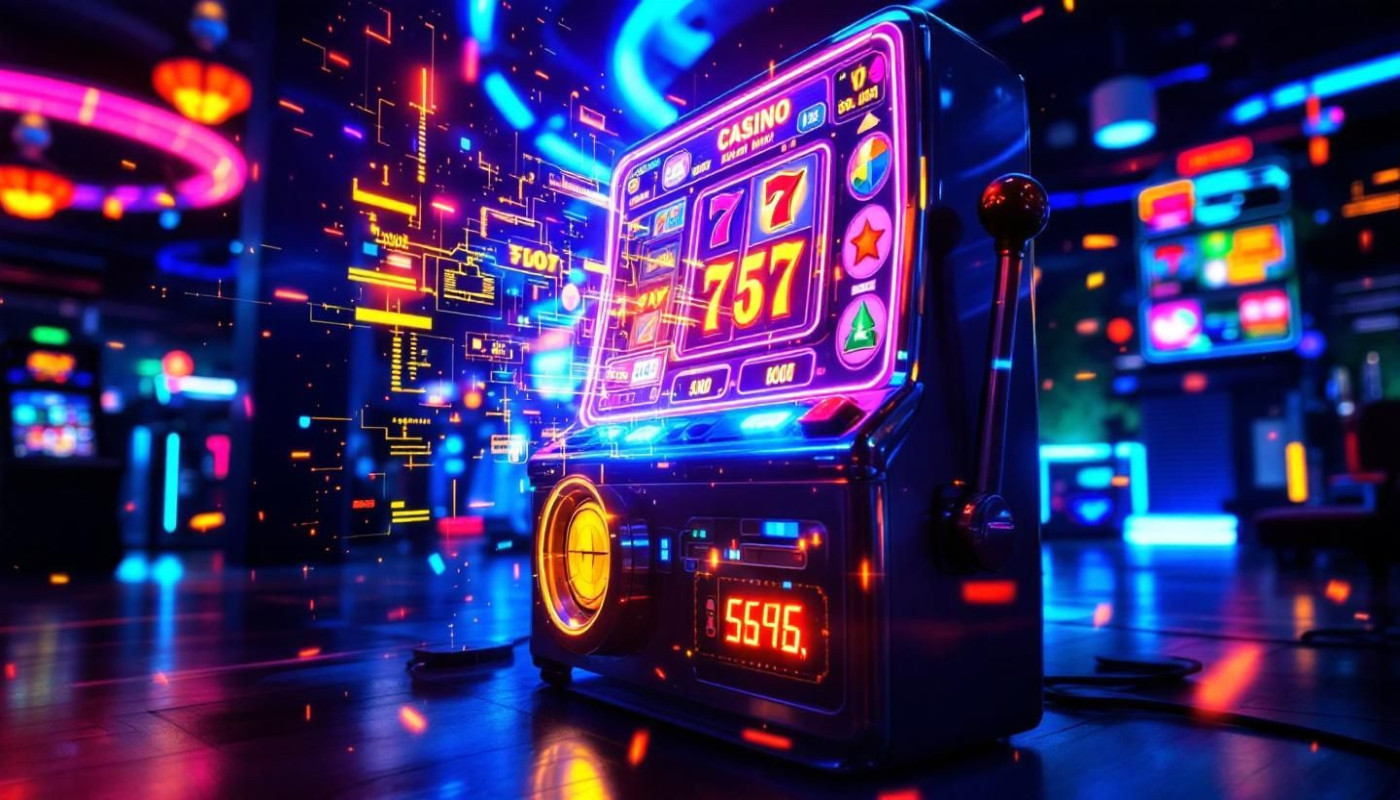Table of contents
Imagine a time when the vibrant energy of a crowded casino was confined to the clinking of coins, the shuffling of cards, and the rolling of dice on felt-covered tables. Fast forward to the present day, and the casino experience has been utterly transformed by the digital revolution. The evolution of casino games is a fascinating tale, winding from the exclusive salons of aristocrats to the global reach of online platforms. It's a journey through innovation, technology, and the ever-changing appetites of players seeking excitement and fortune. As we delve into this captivating progression, we'll uncover how these games have adapted and thrived, driven by the human penchant for risk and reward. Engage with this narrative, and let's explore the thrilling metamorphosis of casino games from the physical to the digital realm, seeing how they've expanded their allure to a worldwide audience. This evolution is not just a history lesson; it's a roadmap to understanding the future of gaming and entertainment. Prepare to be swept away by the story of how casino games have become a staple of modern leisure and digital culture.
The Origins and Early History of Casino Games
The tapestry of casino game history is interwoven with numerous cultures and eras, as gambling origins can be traced back to ancient times. Far from the digital interfaces of today, the earliest forms of betting were likely simple dice games and rudimentary card activities, serving as both a social outlet and a means of settlement among disputing parties. As these pastimes evolved into more structured endeavors, the establishments that hosted them—often referred to as the earliest casinos—began to take shape, laying the groundwork for gaming house culture.
In different regions, various traditional card games rose to prominence, reflecting not only leisure but also societal values and competitive spirit. From the Chinese Dominoes of the 9th century to the salons of 17th century Europe where baccarat and blackjack originated, these games slowly metamorphosed into the sophisticated forms we recognize today. As these activities grew in popularity, the concept of a 'house edge' began to take hold, ensuring that the establishments hosting these games would retain a guaranteed profit margin, cementing the enduring presence of casino gaming in the fabric of entertainment.
The Technological Revolution and Mechanical Slots
The latter part of the 19th century witnessed a significant milestone in casino technology advancements with the inception of the first slot machine. This pioneering gambling device laid the groundwork for the mechanical slot machines that would soon populate casino floors. The allure of these machines was not merely in their novelty; they fundamentally transformed the player's gaming experience. Instead of relying on card tables and manual operation, these slots offered a new form of entertainment that was both autonomous and engaging.
As the concept of gambling machine evolution picked up momentum, the introduction of mechanical slot machines further revolutionized the industry. Players were captivated by the seamless integration of intricate gears and levers, which stood in stark contrast to the hands-on card games of the era. The random number generator (RNG), although a rudimentary mechanical version in those early machines, was a precursor to the sophisticated electronic RNGs that would later govern the fairness and unpredictability of modern slots.
This transition marked a pivotal point in slot game accessibility. No longer were games confined to the expertise and handling of dealers or the physical presence of other players. Anyone could enjoy a quick and simple bet with the pull of a lever, making gaming more inclusive and widespread. The mechanical slot machine became an iconic fixture in casinos worldwide, serving as a stepping stone to the diverse array of gaming options available today. This progression not only expanded the variety of games but also democratized the casino experience, allowing a larger demographic to partake in the thrill of gambling.
The Rise of Electronic Gaming and Video Slots
The transformation of slot machines from mechanical levers to electronic gaming machines represents a pivotal moment in casino history. This shift ushered in the era of video slots, a genre that expanded the horizons of casino game diversification. Electronic gaming machines leveraged intricate software to offer an array of new features, including multiple paylines, which fundamentally altered the dynamics of chance and strategy. As themed slot games emerged, developers tapped into a variety of popular cultures and fantasy motifs, enhancing player engagement through immersive graphical interfaces. This evolution in gaming not only catered to a broader audience but also enriched the overall casino experience. The intricacy of modern video slots—with their elaborate sound effects, video clips, and interactive bonuses—has transformed the once straightforward slot machine into a multifaceted entertainment platform.
Online Casinos and the Digital Evolution
The advent of online casinos marked a seminal moment in the gaming industry transformation, as it broadened the horizons of casino enthusiasts to unprecedented levels. These digital gaming platforms provided a gateway to internet casino games, allowing users to indulge in a virtual gambling experience without the traditional boundaries imposed by physical locations. The digital era has not only made games like poker, roulette, and slots more accessible but has also introduced a world where one can play anytime and anywhere, provided there's an internet connection.
With this shift, the virtual landscape has been rife with both challenges and opportunities. One of the notable hurdles was ensuring the security of players' data, where the technical term 'encryption' comes to the forefront. Online casinos implement robust encryption methods to secure financial transactions and user data, fostering a safe gaming environment. Meanwhile, the opportunities are vast, including the potential for games to reach a global audience and the continuous innovation in game design and user experience. This evolution is a testament to how technology can reshape industries and consumer habits.
In discussing these advancements, one could consider various examples of how certain games have garnered attention on digital platforms. For instance, plinko recenzie are indicative of how classic games have been reinvented within online casinos, offering a fresh take on gaming that attracts both new and seasoned players. Such games contribute to the dynamic nature of the online gambling landscape, capturing the essence of modern digital entertainment.
Mobile Gaming and the Future of Casinos
With the advent of mobile casino games, the landscape of gambling has undergone a significant transformation. The proliferation of smartphones and tablets has catalyzed a shift towards gaming on-the-go, offering unprecedented levels of accessibility and convenience to users worldwide. The ease with which players can engage in smartphone slot games has not only diversified the demographic of gamers but also reshaped the structure of the industry. Looking ahead, the integration of emerging gaming technologies such as augmented reality (AR) and virtual reality (VR) stands to revolutionize the sphere of digital gambling. AR/VR casino experiences promise to amalgamate the immersive ambiance of physical casinos with the comfort of playing from any location, thus potentially attracting a new wave of enthusiasts. The success of these innovative platforms is anchored in responsive design, ensuring that casino interfaces are seamlessly adaptable across a variety of devices, thereby enhancing user engagement and satisfaction. As these technologies continue to mature, they are likely to become pivotal in defining the next era of casino gaming.
Similar articles

Stress Relief And Profit: A New Trend In Online Gaming?

Maximizing Minimal Bets In Online Crash Games

Exploring The Rise Of Food-Themed Casino Games: A New Trend?

Future Trends In Regional Networking: What To Expect

Your Guide To Navigating Promotions In Online Casinos

Can Gamified Promotions Revolutionize Traditional Service Industries?

Decoding Bonus Terms: What Players Should Know Before Playing

Exploring The Impact Of Welcome Bonuses On Player Retention?

Exploring The Popularity And Strategies Of Chicken-Themed Road Games

